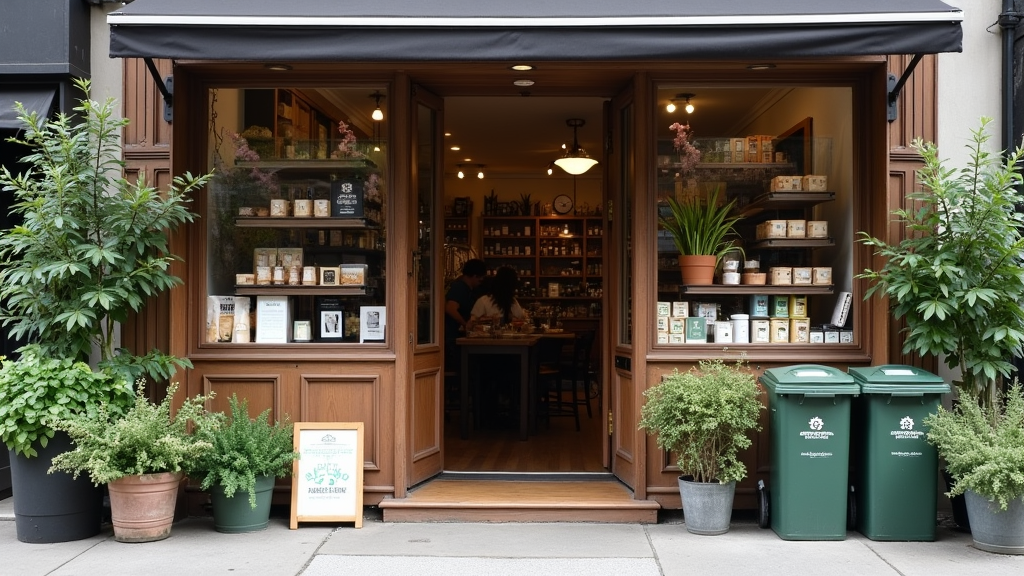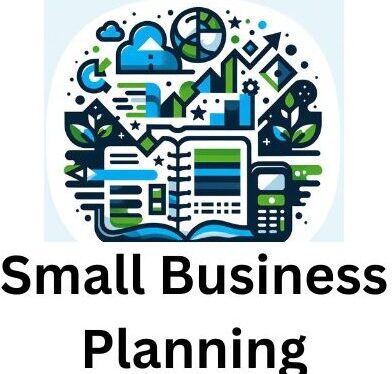Small enterprises have a unique spot in the big picture of sustainability. While large corporations often get all the attention for their climate commitments, I’ve seen firsthand how smaller businesses can be nimble and creative, trying out ecofriendly strategies in ways that can leave a real mark on their communities. In this article, I’ll walk you through novel sustainability practices for small businesses—from fresh ideas in day-to-day operations to smart ways to involve your team and customers.

Why Sustainability Matters for Small Businesses
Bringing sustainability into a small business isn’t just good for the planet. It helps save money, create a more enjoyable workplace, and win the loyalty of eco-conscious customers. As energy costs climb and consumers pay more attention to what they buy, going green isn’t an optional bonus anymore. It becomes a way to stay competitive and build a brand that people genuinely respect.
Research from NielsenIQ shows that almost 80% of global consumers say they find value in sustainable products, and many are willing to pay a bit more for them. For a small enterprise, sustainably minded practices can turn first-time buyers into regulars. Even more, using creative sustainability tricks often means finding new efficiencies and ways to work smarter.
Getting Started: Laying the Foundation for Sustainable Practices
Every big change I’ve seen starts with a few small changes. If you haven’t tried weaving sustainability into your day-to-day, here are a few approaches worth checking out first:
- Assess Your Use of Resources: Review where you use the most energy, water, or materials. Many small shops find low hanging fruit like switching to LED bulbs or fixing drippy faucets.
- Set Clear but Achievable Goals: Instead of broad goals like “be greener,” zoom in on concrete actions like reducing packaging waste or cutting energy use by 10% this year.
- Get Everyone Involved: Even in a small team, sustainability works best when everyone feels part of the mission. Try offering a reward for ecofriendly suggestions or form a minigreen team to brainstorm new ideas.
Novel Sustainability Ideas That Actually Work
Over time, I’ve found a handful of ideas that can really move the needle for small enterprises, especially when budgets and time are tight. Some of these are industry specific, but most can be adapted to shops, cafes, agencies, and just about any kind of business.
Circular Economy Moves
The circular economy is about keeping products and materials in use for longer instead of sending them straight to landfill. Even small businesses can try unique approaches like:
- Product Takeback Programs: Offer discounts or loyalty points for customers who bring back packaging or products for recycling or reuse.
- Upcycling Waste: Turn leftovers from your operation into something fresh—think a bakery using stale bread in croutons or a fashion store hosting an event to make tote bags out of unsold stock.
Energy & Water Innovations
- Smart Sensors: Simple occupancy sensors for lighting or smart thermostats help save energy, often paying for themselves quickly.
- Greywater Reuse: For those with a bit more flexibility, small systems can collect water from sinks or washing machines for use in toilets or garden irrigation.
Green Procurement and Ethical Sourcing
Shifting your supply chain to more sustainable products doesn’t always cost more. Sometimes it’s about making smarter choices.
- Bundling Orders: Reduce transport emissions (and shipping fees) by buying larger orders less often.
- Local and Fair Trade Sourcing: Partner with nearby suppliers or choose certified sustainable goods. The stories behind these products are great to share with customers and look good in marketing material.
Low Waste & Digital Innovation
- Paperless Practices: Switching invoicing, receipts, or ordertracking to digital forms can shrink your paper waste fast.
- Compost and Zero Waste Challenges: Encourage composting at work or host a “no single use plastics” day. Sometimes a fun challenge can spark lasting changes.
Practical Tips to Make Sustainability Stick
Trying something new is only half the story. Keeping sustainability woven into your business takes real effort, especially in the busy world of a small operation. Here’s what’s worked for me and others I’ve worked with:
- Start Small and Measure Progress: Don’t try to tackle everything at once. Start with what feels most achievable, and track your progress with simple metrics like monthly energy bills or waste bins filled.
- Make Sustainability Part of Your Brand: Share stories of your adventure—struggles included—on your website or social media. Customers really connect with honesty and a sense of mission.
- Support and Train Your Team: Every small win (like hitting a recycling goal) deserves recognition. Keep the team looped in with regular updates or even informal competitions.
Real World Examples of Sustainability in Small Enterprises
Nothing inspires quite like seeing these ideas in action. Here are a couple of real examples that show the range of what’s possible:
- Refill Shops: Small zero waste stores across North America and Europe let customers refill everything from cleaning products to snacks, cutting way down on packaging.
- Creative Coffee Shops: Cafes have switched to oat milk and reusable cup discounts, but smaller brands get even more inventive by sourcing coffee waste for local compost or even mushroom farming projects.
- Independent Print Shops: Digital shows and ondemand print runs reduce paper waste, while leftover inks are sometimes used for local art projects or school donations.
Things to Watch Out for with Sustainable Mix-Ups
I’ve learned, sometimes the hard way, that not every sustainability plan works out immediately.
- Cost Creep: Some ecofriendly materials or tech upgrades are an investment. Doubling up with grant programs, tax incentives, or local business support networks can help soften the blow.
- Supplier Reliability: Switching to new, more ethical suppliers sometimes means a learning curve. Building redundancy (having more than one supplier) and talking to others in your network helps you avoid bumps along the road.
- Staying Authentic: People will see through “greenwashing” (looking green without actually changing much). Genuine efforts matter way more than flashy claims.
Cost Creep
Expenses can sometimes jump up when testing sustainable products or processes. Small businesses can keep things manageable by piloting new ideas on a tiny scale before rolling them out companywide. Grant and incentive programs from local governments or environmental nonprofits are worth checking for extra support.
Supplier Reliability
New, ecofocused suppliers can help a business reach sustainability targets, but reliability is important too. Keeping communication open and having backup plans makes it much easier to stay on track if something unexpected pops up.
Staying Authentic
Sticking to genuine commitments (like updated policies or visible product changes) helps build trust. Updating customers regularly with real progress and hiccups, not just the feel-good victories, keeps your brand honest and relatable.
Advanced Sustainability Ideas for Small Businesses Ready to Take It Up a Notch
If you’re already comfortable with the basics, some eye-catching ideas can really put your small enterprise on the map:
Green Certifications: Programs like B Corp, 1% for the Planet, or LEED bring added credibility and a sense of pride to your team. Showing off certifications can become a key marketing tactic, and may open up new opportunities to partner with other eco-minded companies.
Renewable Energy: You might have thought about solar panels, but even joining a local green energy program can help power your business with cleaner sources. Some towns now offer community solar projects, giving access without upfront costs.
Community Partnerships: Team up with local organizations or schools for cleanups, planting events, or educational workshops. It’s a good way to build connections and spread your message of sustainability right in your own backyard.
These advanced steps take a bit more investment, but they pay off by building a truly future-friendly business. Getting local press coverage or recognition can also give a boost to your reputation among both new and returning customers.
Go beyond the basics by hosting workshops or speaking at local forums to share what you’ve learned along the way. It’s a great way to inspire others and position your business as a leader in sustainability.
Frequently Asked Questions
Here are some questions I get from other small business owners:
Question: Is sustainability just for eco businesses?
Answer: Not at all! Any business, no matter the size or type, can find ways to cut waste, save energy, and source responsibly. Start with one manageable project—and watch how it can spark more ideas over time.
Question: How can I afford green upgrades?
Answer: Small changes build up over time. Focus on projects that save money quickly, like improving energy efficiency. Look for rebates or grants to help offset initial costs. Collaborating with other small businesses to share costs can also unlock some changes you couldn’t make alone.
Question: Can my small business really make a difference?
Answer: Absolutely. Collectively, small enterprises are everywhere. Even a simple switch up—like cutting single use plastics—adds up when lots of businesses do the same, making a genuine impact in the long run.
Extra Resources & Affiliate Disclosure
If you’re interested in tools and products to help make your business more sustainable, these are resources I trust.
- EPA Guide to Sustainable Materials Management
- GreenBiz: Business Sustainability News & Insights
- B Lab: Get Certified as a B Corp
Every business adventure into sustainability looks a bit different, but even the smallest steps open up fresh opportunities for growth, connection, and creativity. If you’re thinking about your next move, I always suggest starting with what feels doable now, learning from each step, and inviting your team and customers along for the ride. Even small improvements matter and can inspire others to step up as well.

What a fantastic and inspiring article! I really appreciate how you highlight that even the smallest businesses can make a meaningful sustainability impact. It’s empowering and practical for sure! I especially love the real-world examples you included, like refill shops and creative coffee waste reuse.
One question – Which of these sustainability practices have you personally seen bring the biggest boost to customer loyalty or brand reputation?
Thanks for the comment.
I have found that recycling is most effective. It’s relatively easy to implement and it shows customers that the company cares about the environment. A potential customer is more likely to do business with that type of company as apposed to a company that does not seem to care about the environment.